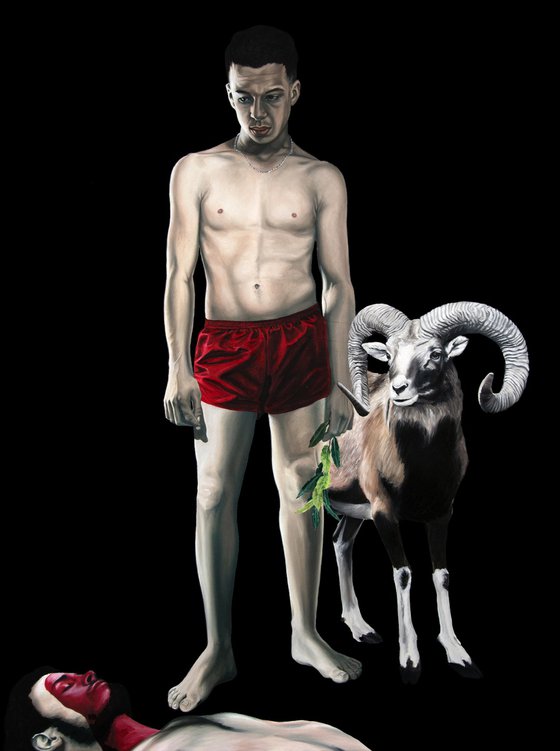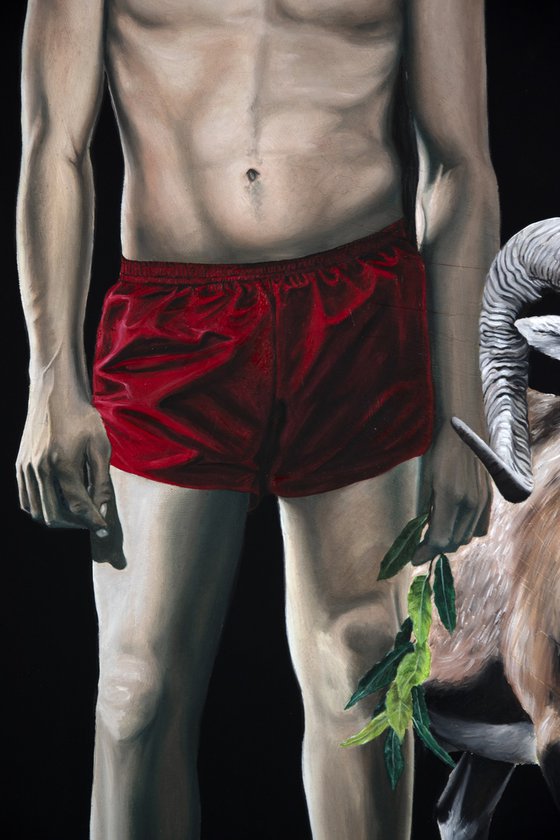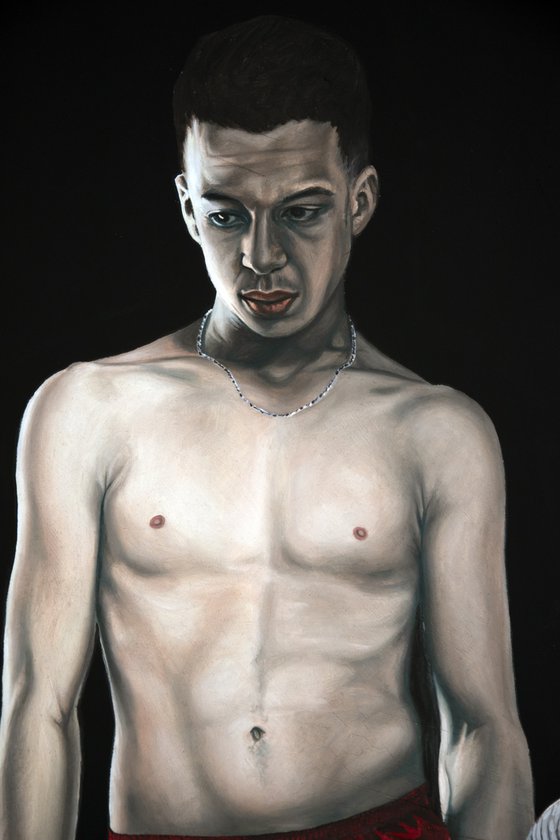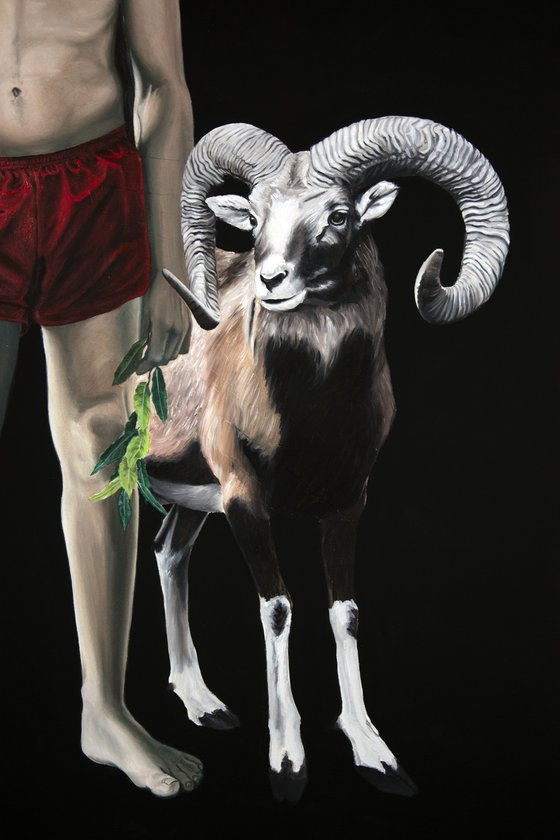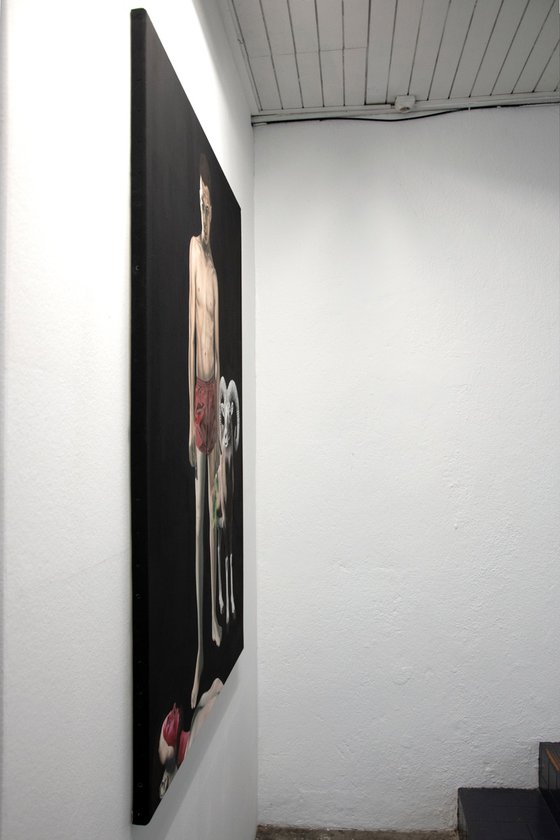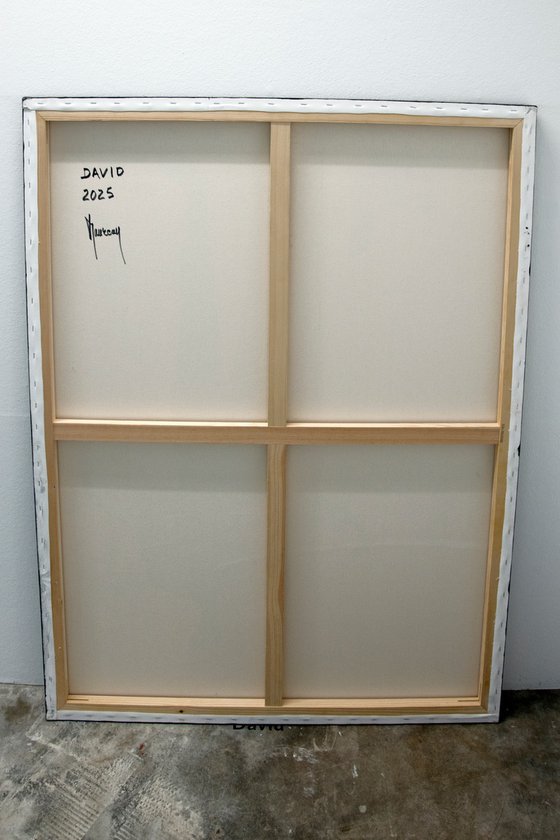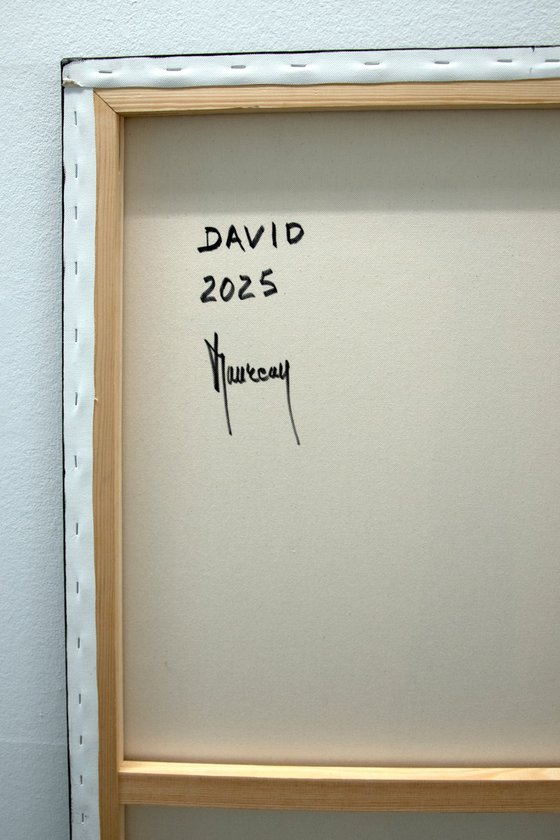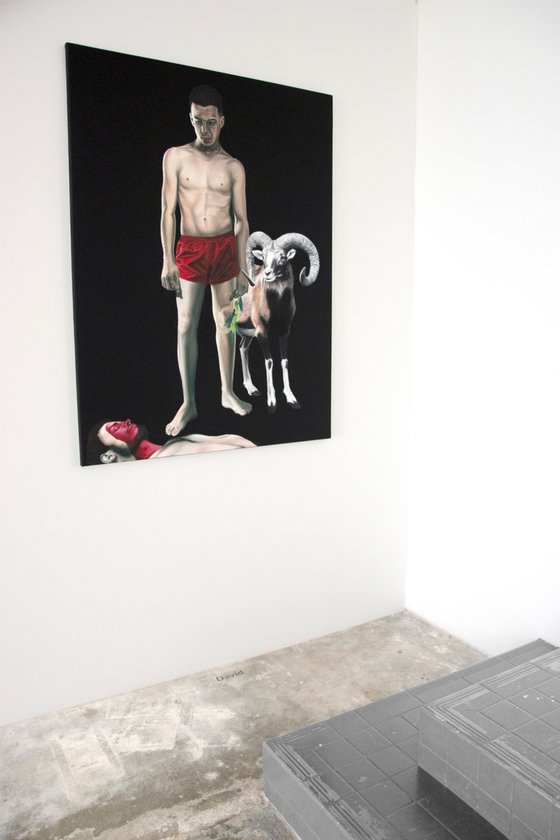David (2025)Oil painting by Nicolas Maureau
97 x 130 x 2cm (unframed) / 97 x 130cm (actual image size)
£2,619.9
Original artwork description
In David, Nicolas Maureau revisits one of the founding myths of power: the victory of the weak over the strong. But here, the heroic stance is defused, diverted, and silent. The young David does not triumph with the arrogance of a future king: he appears frozen, naked, and vulnerable. His frontal posture is upright but closed; his gaze is grave, more melancholic than conquering.
At his feet lies the defeated Goliath, his face stained red, evoking both blood and theatrical makeup.
The ram placed on the right immediately evokes the memory of Abraham's sacrifice. His gaze, turned toward the viewer, introduces a different temporality; it is no longer the image of a fact, but a suspended enigma. The ram, peaceful yet powerful, evokes animality, sacrificial power, and redemption.
David explores the fragile moment that follows victory, when power is no longer an act, but a question.
Materials used:
oil painting
Details:
- Oil painting on Canvas
- One of a kind artwork
- Size: 97 x 130 x 2cm (unframed) / 97 x 130cm (actual image size)
- Ready to hang
- Signed on the back
- Style: Photorealistic
- Subject: People and portraits
Tags:
#portrait#nude#animals#beauty#great figure#malefigure#biblicalart#powerandsymbolism#sacrificeandvictory14 day money back guaranteeLearn more
Original artwork description
In David, Nicolas Maureau revisits one of the founding myths of power: the victory of the weak over the strong. But here, the heroic stance is defused, diverted, and silent. The young David does not triumph with the arrogance of a future king: he appears frozen, naked, and vulnerable. His frontal posture is upright but closed; his gaze is grave, more melancholic than conquering.
At his feet lies the defeated Goliath, his face stained red, evoking both blood and theatrical makeup.
The ram placed on the right immediately evokes the memory of Abraham's sacrifice. His gaze, turned toward the viewer, introduces a different temporality; it is no longer the image of a fact, but a suspended enigma. The ram, peaceful yet powerful, evokes animality, sacrificial power, and redemption.
David explores the fragile moment that follows victory, when power is no longer an act, but a question.
Materials used:
oil painting
Details:
- Oil painting on Canvas
- One of a kind artwork
- Size: 97 x 130 x 2cm (unframed) / 97 x 130cm (actual image size)
- Ready to hang
- Signed on the back
- Style: Photorealistic
- Subject: People and portraits
Tags:
#portrait#nude#animals#beauty#great figure#malefigure#biblicalart#powerandsymbolism#sacrificeandvictory